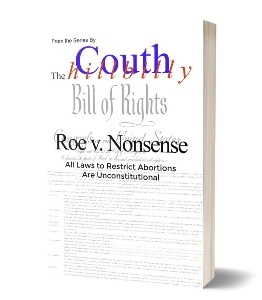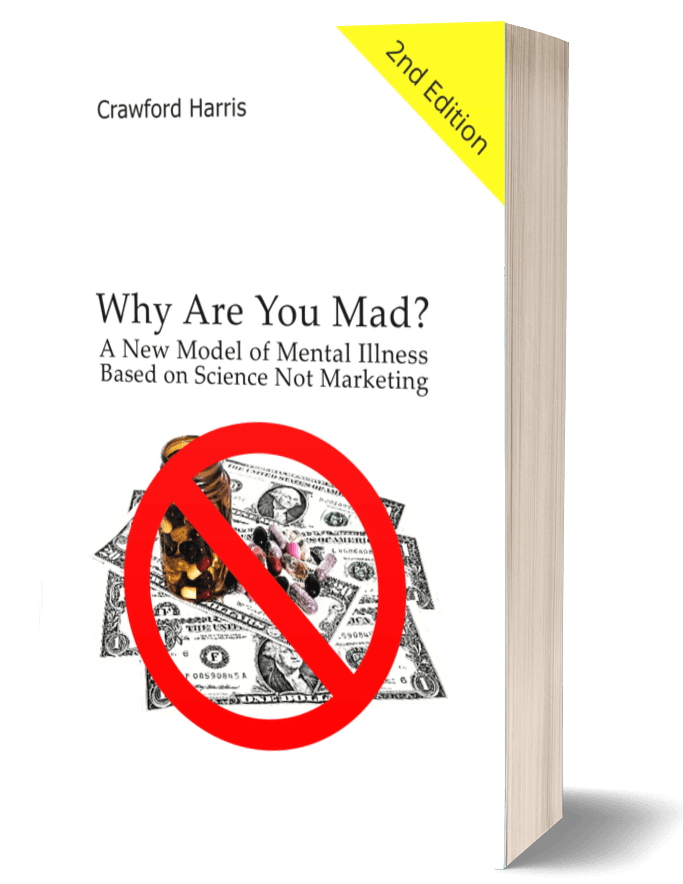 Back in the days before dirt, when I first went to college, there were no courses in underwater basket weaving, tiddlywinks or recreational Nintendo.
Back in the days before dirt, when I first went to college, there were no courses in underwater basket weaving, tiddlywinks or recreational Nintendo.
How could the jocks get a college education back then? Not to worry. The educational institutions of the time had a solution.
They simply recommended that the athletic department suggest taking the easiest courses that the colleges offer. What were these “crip” courses?
I’m glad you asked. The answer, of course, was Business.
Yes. It’s true. Before the people with money began the cosmetic makeover, business was not considered to be among the academic elite disciplines. Actually, back in the 1950s it was treated as a joke. Anyone could get a degree in business.
Run Government As a Business
Really? Give it some thought. Then it becomes one of the most hysterical nonsensical political propositions possible.

This is a hard one. Who was the last businessman to occupy the Oval Office? I won’t keep you guessing. It was George W. Bush, Harvard MBA.
It’s true that all but one of W’s business adventures failed. But, that’s pretty much standard for business. W was able to come away from each experience with a wad of money. That can not be said for any of his investors.
W’s one successful foray into business was with the Texas Rangers baseball team. While he headed the investment team, he was not allowed to actually run the franchise. His role was to be the front man. That worked out much better for his partners.
W can’t take all the credit for the global economic meltdown. The three preceding administrations paved the way but he, with all of that business sense (pardon me) did his share. His predecessors relied on a sizable corps of business experts as well.

Okay. Perhaps previous businessmen serving as president did much better. Let’s find the next previous businessman to occupy that office. Whoops. We have to go all the way back to the election of 1928. Herbert Hoover was one of the wealthiest men in the country. So, unlike W, he was not mostly a business failure. He just failed in governing.
As with W, Herbert had the advantage of businessmen advising his predecessors to pave the way to disaster.
What is it about business that makes people think it prepares one to govern? Do they automatically become expert in international relations, dealing with Congress, national security, infrastructure, . . . anything?
Business is simple. There is only one object. Make money. It attracts the simpleminded.
Even so, 80% of businesses fail in the first five years. That’s really a strong recommendation to run the largest operation in the world.
 JP Morgan’s CEO Jamie Dimon, the leader of the Masters of the Universe, first reported a $2 trillion goof. That quickly grew to $3 trillion. At last count it appeared to be in excess of $5 trillion but Jamie will still collect his bonus.
JP Morgan’s CEO Jamie Dimon, the leader of the Masters of the Universe, first reported a $2 trillion goof. That quickly grew to $3 trillion. At last count it appeared to be in excess of $5 trillion but Jamie will still collect his bonus.
They have mastered the simplest of concepts, turned it into money, realized that large amounts of money can be converted into power, done that by buying almost every politician in sight and robbing the rest of us blind.
This is Not the Founders’ Dream
We can blame these simpleton 24/7. They have certainly earned unlimited criticism. But, perhaps not. They have seduced us but we were very willing to be seduced.
We come from the same stock. In the last couple of generations we have become lazy, physically and intellectually. We avoid thinking whenever possible. The report just came out that 46% of Americans accept creationism, though they have never read both versions of creation offered in Genesis. Eeeeeew. Science is hard. Let’s opt for a mental sugar teet.
Nearly 30 years ago CCA, the Corrections Corporation of America acquired one of its earliest contracts with Hamilton County (Chattanooga) Tennessee to operate their prison. There were some problems. They fired all of the staff. These were people making enough to support families. They had benefits: health care, retirement and such. They were offered back the same jobs at minimum wage, sans benefits. I think I know how private companies are able to do the job cheaper.
 They served the prisoners slop. More savings. They established a way of increasing revenue. The county had a policy of giving 2 days credit for each day the prisoner worked the farms, picked up trash on the highways or performed other, similar chores. CCA sent out no one to work. That meant more revenue for CCA – more man days they were able to charge for. The capacity was stretched and the charges to the county went far above budget. But, CCA prospered. The county’s putative savings didn’t evaporate. They snuck into CCA’s profit column.
They served the prisoners slop. More savings. They established a way of increasing revenue. The county had a policy of giving 2 days credit for each day the prisoner worked the farms, picked up trash on the highways or performed other, similar chores. CCA sent out no one to work. That meant more revenue for CCA – more man days they were able to charge for. The capacity was stretched and the charges to the county went far above budget. But, CCA prospered. The county’s putative savings didn’t evaporate. They snuck into CCA’s profit column.
A few prisoners died needlessly, to increase CCA’s profits. One young lady complained of severe abdominal pain on a weekend. Staff had been cut so much that there was no medical help available. The underpaid supervisor wasn’t all that concerned. No ambulance was called. She died of an entopic pregnancy.
CCA and the county had different goals. imagine that. The business goal could not be simpler: make money. The responsibilities of government are a bit more complex. In managing a prison population, the goals of CCA and the county are in conflict. The county was derelict in its obligation to the citizenry.
Business is not more efficient in running governmental functions. It merely gives itself more latitude to pay less and abuse the system more than most government entities can get away with. It hides its greed behind an elaborate public relations campaign of claimed efficiency and competence.
You’ve heard it before. No one on his death bed thinks, ‘I wish I had spent more time at the office.’ On those rare times when we stop to think about life and death, how many stock certificates you have in your portfolio doesn’t top the list of concerns.
 We have been seduced by smart phones, McMansions, trips to Cancun, Rolexes, shares of Facebook and anything else with a price tag on it. Still, we don’t get in to the top ten of happy countries. Why?
We have been seduced by smart phones, McMansions, trips to Cancun, Rolexes, shares of Facebook and anything else with a price tag on it. Still, we don’t get in to the top ten of happy countries. Why?
Because money doesn’t make people happy. Check out the majority of lottery winners – the one who are now broke.
What makes you happy, or at least content? The safety of your person and your family from crime. Oh, that’s a government responsibility. Safe bridges, tunnels and such. Oh shit. Government again. Affordable education for you and your rug rats. I won’t say it. Security of your retirement, despite the greed of the Jamie Dimons. Health care. Job security. Uncontaminated food to stuff ourselves with. Clean air to breathe. Clean water to brew more beer.
Those are some of the reasons given for the high happiness scores of Denmark, Norway, Finland and their peers. We don’t belong to that club. We put money first, just as the businessmen have trained us. One simpleminded criterion or happiness. It could have been our choice, had we ignored the siren call of the greediest and most intellectually limited among us: businessmen.
Perhaps I am a member of a very small minority but I opt for happiness. While business interests drool over the idea of a government too feeble to inhibit their greed and their willingness to push beyond the boundaries of the law, I prefer a government substantial enough to provide an environment that engenders happiness. That costs some money. It needs to be paid for. It sounds unAmerican.
Where do we get the money? The most successful bank robber of the 1940s and 50s was Willie Sutton. When asked why he robbed banks, his answer was, “Cause that’s where the money is.” If 400 people own as much as half the entire population of the country, that might reasonably be considered a potential initial source. It’s going to cost us. The wealthiest should not be denied the opportunity to participate.
Every time you hear a politician proclaim that government should be run like a business, find out if he has a rational opponent. If you just can’t wait until the second wave of economic calamity hits, you have protected yourself from the scourge of being happy.
 .
.
.




very well written and enjoyable to read, thank you, I can’t agree more with everything you said.
As the holder of a degree in Mangement from the college of business, I am unqualified to comment on your superior intellectual musings. However, farmer liz, who can’t find the shift key, agrees with you, so that’s a plus.
Now, Ed. I would generally refer to the University of Notre Dame with a bit more deference than as some college of business. I have run a couple of businesses. I have served as mayor of a city. I have consulted on major infrastructure and other projects for another country. That background provides me some basis for asserting that the tenets of business are inappropriate to governing. That doesn’t suggest that there are not quite intelligent people who have pursued an interest in business. Having known you over the years, I realize there are exceptions to my blanket characterization. However,… Read more »
This post is genuinely a pleasant one it assists new the web people, who are wishing for blogging.